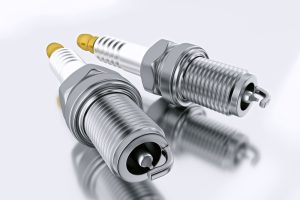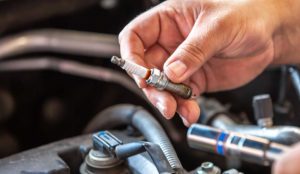Spark plugs are small yet crucial components in any internal combustion engine. Despite their size, their role is vital for the engine’s performance, fuel efficiency, and overall reliability. Understanding how spark plugs work, the types available, and their impact on your vehicle can help you maintain your car better and save money on fuel and repairs.
What Are Spark Plugs?

A spark plug is a device that delivers electric current from the ignition system to the combustion chamber of the engine. It ignites the air-fuel mixture by creating a spark, which powers the engine’s cylinders.
How Spark Plugs Affect Engine Performance
The efficiency of your engine largely depends on how well the spark plugs perform. Here’s how:
-
Ignition Timing: Spark plugs must ignite the fuel-air mixture at the right moment. Incorrect ignition timing leads to poor combustion, reducing power.
-
Spark Strength: Weak or inconsistent sparks can cause misfires, leading to rough engine operation.
-
Fuel Combustion: Proper combustion ensures maximum energy extraction from fuel, translating to better engine performance and responsiveness.
Impact on Fuel Efficiency
Fuel efficiency is directly linked to how completely and efficiently the fuel burns inside the engine cylinders. Worn or dirty spark plugs cause incomplete combustion, resulting in:
-
Increased fuel consumption
-
Higher emissions
-
Reduced engine power
Signs of Worn Spark Plugs
Knowing when to replace spark plugs can save you from costly repairs and poor vehicle performance. Common symptoms include:
-
Engine misfires or rough idle
-
Difficulty starting the engine
-
Decreased acceleration
-
Poor fuel economy
-
Increased exhaust emissions
Types of Spark Plugs and Their Characteristics
| Type | Description | Pros | Cons | Typical Usage |
|---|---|---|---|---|
| Copper | Traditional plug with copper core | Excellent conductivity, affordable | Short lifespan, prone to wear | Older cars, budget replacements |
| Platinum | Has a platinum tip for longer life | Longer life, better performance | More expensive | Most modern vehicles |
| Double Platinum | Platinum on both electrodes | Even longer life, better durability | Higher cost | High-performance vehicles |
| Iridium | Uses iridium for the electrode tip | Superior durability, better spark | Highest cost | Performance and luxury cars |
| Silver | Silver core for better heat conductivity | Good heat dissipation | Shorter lifespan | Some specialized engines |
How to Maintain Spark Plugs
Proper maintenance can extend spark plug life and optimize engine performance:
-
Regular Inspection: Check spark plugs every 30,000 miles or as recommended by your vehicle’s manufacturer.
-
Cleaning: Remove deposits and corrosion carefully without damaging the electrodes.
-
Correct Gap: Ensure the spark plug gap matches manufacturer specifications. Incorrect gaps reduce spark efficiency.
-
Timely Replacement: Replace plugs before they become worn to avoid engine problems.
Steps to Replace Spark Plugs

If you decide to replace spark plugs yourself, follow these basic steps:
-
Gather Tools: Spark plug socket, ratchet, gap tool, and possibly a torque wrench.
-
Locate Spark Plugs: Refer to your car manual for exact locations.
-
Remove Ignition Coils or Wires: Carefully disconnect.
-
Remove Old Spark Plugs: Use the socket to unscrew the plugs.
-
Check and Adjust Gap on New Plugs: Use a gap tool to ensure proper spacing.
-
Install New Spark Plugs: Screw in by hand, then tighten with a torque wrench.
-
Reconnect Ignition Components: Attach coils or wires back securely.
-
Test the Engine: Start the car and listen for smooth operation.
Why Choose Quality Spark Plugs?
Using low-quality spark plugs can lead to:
-
Faster wear and tear
-
Poor engine performance
-
Increased emissions
-
Potential engine damage
Always opt for reliable brands and quality parts designed for your vehicle model.
Summary: Why Spark Plugs Matter
| Aspect | Importance |
|---|---|
| Engine Performance | Ensures smooth and powerful engine operation |
| Fuel Efficiency | Helps maximize fuel economy |
| Emissions | Promotes cleaner combustion, reducing pollutants |
| Engine Longevity | Prevents misfires and damage from incomplete combustion |
| Maintenance Cost | Timely replacement reduces costly repairs |
For those looking to upgrade or replace their spark plugs, you can conveniently Buy Spark Plugs online with a wide selection of quality options tailored to your car.
Final Thoughts
Spark plugs are a small but essential part of your vehicle’s engine system. Proper maintenance, timely replacement, and choosing the right type of spark plug can significantly improve engine performance and fuel efficiency. Don’t overlook this simple component — it’s key to keeping your car running smoothly and economically.